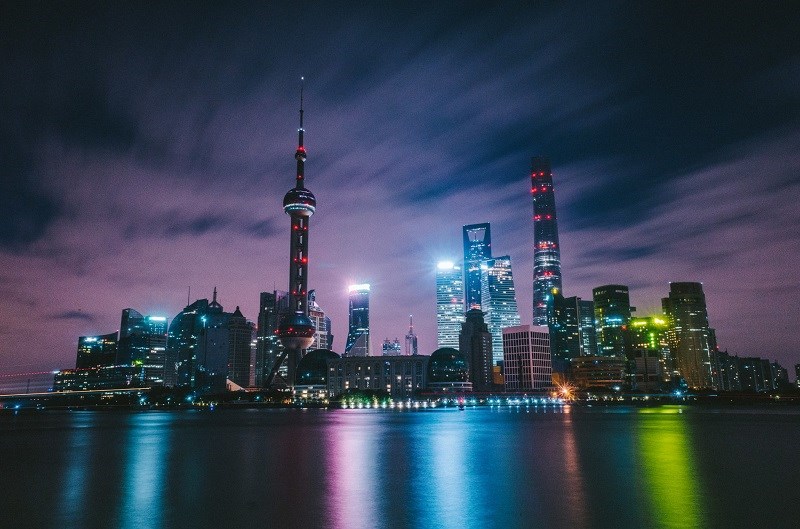
Editor's note: Read the latest on how the coronavirus is rattling the markets and what you can do to navigate it.
Rather than as a cue to deploy capital on the dip, the pandemic presented an opportunity to swap out weak links for Heather Peirce, director of global equities at Toronto-based Black Creek Investment Management Inc. (BCIM).
“We rarely have any cash in the portfolio, unless it’s transitory and we’re in the process of selling a name and purchasing another,” says Peirce, a 26-year industry veteran who worked for 10 years at Invesco Trimark before joining BCIM in 2013. She now manages the four-star rated $2.8 billion CI Black Creek Global Leaders Class A. By sticking to the course and making minor changes along the way, she’s found stable performance.
Risk for Promise
“We view volatility as an opportunity to upgrade a portfolio. When we saw markets come under significant stress we took the opportunity to sell a name we were already transitioning out of, Carnival Corp. (CCL). We had owned it for a very long time, but in many ways, the thesis had played out. We were increasingly concerned about capital allocation and capital expenditures required for new ships, and capacity coming out of competitors.”
In its place, Peirce acquired Bureau Veritas SA (BVI) a Paris-based firm that is a leader in testing and certification of health and hygiene services. “There are only three large global players in this industry and BVI is the leader in terms of digitization. They also have partnerships with the likes of Dassault Systemes SE (DSY) and Schneider Electric SE (SU),” says Peirce, who works alongside a team of 11 partners, led by Bill Kanko, CEO and founder of BCIM. The team also added to the holding in Expedia Group Inc. (EXPE). “In an environment where travel has been locked down, globally, we take a very long term view and tend to be contrarian. That was an opportunity to add to the position when travel names were in freefall. It has since then rebounded very strongly.”
In the year to date (as of June 22), the fund has returned -4.10%, compared to -2.85% for the Global Equity category. However, over longer periods the fund has performed well. For the five and 10 year periods, the fund averaged 6.95% and 11.13%. In contrast, the median fund in the Global Equity category averaged 5.87% and 9.48% respectively. In aggregate, BCIM has about $11.7 billion in assets under management.
The Right Kind of Concentration
A high conviction investor, Peirce owns only 31 names, although that number may sometimes be as low as 25. “It’s a very concentrated portfolio but properly diversified. We diversify by the idea and ensure that the drivers of each business are not overlapping.” On a sector basis, industrial companies account for 20.3% of the portfolio, consumer goods 13.3%, basic materials 12.7% and healthcare 12.4%, followed by smaller weightings in areas such as technology and consumer services. On a geographic basis, Peirce is favouring international markets, as they account for 71% of the portfolio. Conversely, U.S. stocks only account for 23% of the fund.
Peirce draws her names from a proprietary watch list of 1,200 global companies, which meet her general criteria. “They may not be in the portfolio today because of valuation. When we see a substantial decline in valuation they may be of interest, relative to what we already own,” says Peirce, a native of Brantford, ON who earned a bachelor of arts in economics and management studies from the University of Waterloo in 1991. “We are always looking at companies on a long term, discounted cash flow basis. If one of those businesses meets those criteria and is a better option than what we own today, we will attempt to replace our least favourite idea with it.”
Companies are ranked according to their internal rate of return and the team always seeks to replace names at the bottom of the list. These names may have seen their internal rates of return decline or they lack the high internal rates of return of those names at the top. “We are always trying to replace those with a potential new idea, again remaining properly diversified. If we see significant market volatility, as we did during the COVID decline, that may allow us to upgrade the portfolio and replace a position with something that has a higher potential return.”
In essence, Peirce notes that the fund is little changed from what it held before the market meltdown. “We added to positions that were weak, such as Expedia. We’ve also continued to add to some cyclical positions. Other than that, we have not made significant changes because we continue to believe we have pretty attractive return profiles for the existing 31 businesses in the portfolio.”
Beat It by Being Different
Asked if the market recovery may be based on a view that is too optimistic, Peirce notes that the concentrated portfolio approach ignores how the market is behaving. “We don’t have to care what the market is doing, other than it’s our goal to outperform the market over long periods,” says Peirce. “When I look at what is driving the market today, and the concentration risk that exists in a lot of passive products, I would say there many examples of frothy valuations and even formations of bubbles. In the U.S., for instance, we’ve seen the top five weightings in the S&P 500 account for the highest concentration ever. It’s even higher than what we saw in the so-called tech bubble in 1999. Five names now account for 22% of that index. Those same names account for almost 50% of the Nasdaq 100,” says Peirce, referring to high-valuation technology firms such as Amazon.com Inc. (AMZN) “We don’t own any of those names. That’s why we have lagged year-to-date. Many of those names are extremely expensive and over-owned.”
In contrast to the U.S. market, international stocks are trading at their lowest valuations in decades. “European stocks, in particular, are at a 50-year relative valuation differential when comparing the MSCI Europe to MSCI US. This creates an opportunity,” says Peirce. “You will look very different from the peer group or any index. To us, that’s where the opportunity lies.”
One favourite name is Booz Allen Hamilton Holding Corp. (BAH) the parent of Booz Allen Hamilton, a U.S.-based management and information technology consulting firm that provides its services to U.S. government departments and commercial clients. Peirce believes that its internal rate of return remains in the mid-teens for the next decade.
“It’s in a strong niche, with the U.S. government investing heavily in digitization and cyber-security,” says Peirce. “The CEO, Horacio Rozanski was previously the head of human resources, and I can’t think of a more appropriate individual to manage a people business like Booz Allen. Two-thirds of the consulting base has the highest level of security clearance in the U.S. That’s a huge barrier to entry for its competitors.” Even though the share price has more than doubled in the past three years, Peirce has not set a price target for the stock.
Another favourite is DKSH Holding AG (DKSH), a Swiss-based global leader in so-called market expansion services for the health care and consumer products industries. “Almost of all their revenues reside in what we call Pan-Asia. They are a leader in taking high-value healthcare products and getting full registration locally and managing the logistics and supply chains. They do it for many manufacturers around the world,” says Peirce, adding that the founding Diethelm and Keller families have large stakes in the firm. Although the stock has not moved that much in the past two years, the company is at the top of Peirce’s list because its internal rate of return potential is in the high teens. “We believe it will have above-average growth given their exposure to healthcare and consumer products in Pan-Asia.”
Looking ahead, Peirce argues that policy-makers and central bankers are doing everything they can to support global equity markets. But she is concerned about earnings, and the valuations placed on those companies, in a period when many are shut down. “It’s important to understand how the recovery is playing out. We remain confident in the businesses that we own. But we don’t know what the market will ultimately do. There is an unprecedented amount of risk in that concentration that exists today in five names.”





















